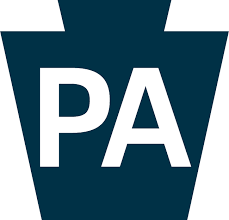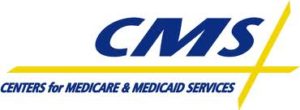Pennsylvania Health Law Project Newsletter
The Pennsylvania Health Law Project has published its June 2022 newsletter.
Included in this month’s edition are articles about:
 Changes in HealthChoices managed care plans that take effect on September 1.
Changes in HealthChoices managed care plans that take effect on September 1.- The July 1 transition to Tempus as the financial management services vendor for Community HealthChoices, which means Tempus will take over paying direct care workers hired by Community HealthChoices participants as part of that program’s self-directed care model.
- A reduction of the deadline for requesting a fair hearing in response to Medicaid eligibility rejection or termination from the program from 90 days, which it has been since the start of the COVID-19 emergency, back to the 30 days it was before that time. This change is retroactive to May.
- A lifting of the pandemic-driven suspension of the need for prior authorization for shift nursing services for Medicaid beneficiaries under the age of 21, which will take effect on November 1.
Read about these subjects and more in the June 2022 edition of Health Law News, the Pennsylvania Health Law Project’s newsletter.
 Included in this month’s edition are articles about:
Included in this month’s edition are articles about: Secretary Levine has ordered ambulatory surgical facilities to report on specific items for the purpose of managing supplies and equipment. Portions of the survey are to be updated each day, including the number of procedures they perform and their remaining supplies of personal protective equipment.
Secretary Levine has ordered ambulatory surgical facilities to report on specific items for the purpose of managing supplies and equipment. Portions of the survey are to be updated each day, including the number of procedures they perform and their remaining supplies of personal protective equipment.  The Department of Human Services (DHS)’ Office of Mental Health and Substance Abuse Services has sent an FAQ to HealthChoices behavioral health managed care organizations, fee-for-service providers, and county mental health authorities on the subject of behavioral health Medicaid programs and the COVID-19 crisis. Find that FAQ
The Department of Human Services (DHS)’ Office of Mental Health and Substance Abuse Services has sent an FAQ to HealthChoices behavioral health managed care organizations, fee-for-service providers, and county mental health authorities on the subject of behavioral health Medicaid programs and the COVID-19 crisis. Find that FAQ  The Families First Coronavirus Response Act, signed into law on March 18, includes a temporary 6.2 percentage point increase in the federal medical assistance percentage (FMAP: the rate at which the federal government matches state Medicaid expenditures). A new CMS FAQ provides information about the state Medicaid expenditures to which the increase applies, its applicability to Medicaid DSH payments, the duration of the supplemental funding, and more. Find this FAQ
The Families First Coronavirus Response Act, signed into law on March 18, includes a temporary 6.2 percentage point increase in the federal medical assistance percentage (FMAP: the rate at which the federal government matches state Medicaid expenditures). A new CMS FAQ provides information about the state Medicaid expenditures to which the increase applies, its applicability to Medicaid DSH payments, the duration of the supplemental funding, and more. Find this FAQ  The Department of Drug and Alcohol Programs (DDAP) has issued a document clarifying the state’s response to federal guidance on the disclosure of patients’ substance abuse disorder records during the telehealth process. See that policy clarification
The Department of Drug and Alcohol Programs (DDAP) has issued a document clarifying the state’s response to federal guidance on the disclosure of patients’ substance abuse disorder records during the telehealth process. See that policy clarification  The legislature continues to deliberate on a number of measures to respond to the COVID-19 crisis. Among the issues being discussed between the administration and legislature are:
The legislature continues to deliberate on a number of measures to respond to the COVID-19 crisis. Among the issues being discussed between the administration and legislature are: Since yesterday, the Department of Human Services has issued the following four new guidance documents:
Since yesterday, the Department of Human Services has issued the following four new guidance documents: Federal
Federal  Governor’s Order Closing State Businesses
Governor’s Order Closing State Businesses CMS Catastrophic Plan Coverage Guidance
CMS Catastrophic Plan Coverage Guidance  PACE Prescription Drug Program
PACE Prescription Drug Program